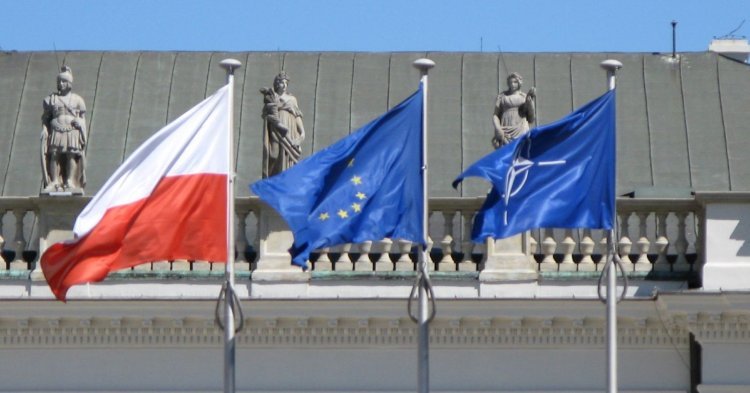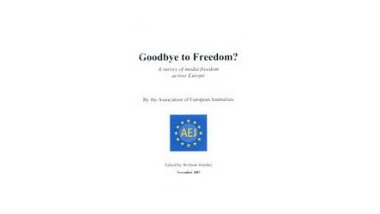The Polish Law and Justice (PiS) party, elected to govern the country in October, has in a short time sparked controversy with its laws reminiscent of the Hungarian government’s ’illiberal democracy’ project. The new government, led by PM Beata Szydło, has challenged the principles of Western democracy by passing a law allowing the government to appoint the leaders of public broadcasters, deciding to weaken the Constitutional Tribunal and, according to the ALDE MEP Guy Verhofstadt, adding pressure to other segments of society, such as police and associations.
On January 13, the European Commission showed it takes these issues seriously. The rule of law mechanism, introduced in 2014, is now being put into practice for the first time, as the Commission announced a preliminary assessment under the mechanism. It is the first step on the path which could lead to the invocation of Article 7 of the Treaty on European Union, to which we referred in our article written in December.
A debate on what to do about Poland will take place in the European Parliament on Tuesday, Jan 19. There will be no resolution to vote on but the discussion will certainly include passionate, YouTube-worthy speeches. EP President Martin Schulz promised the discussion will be "lively” while another EU source expects "carnage".
A dialogue between the Commission and Poland is now going on. In an interview with Politico Europe, Frans Timmermans said that the objective is to clarify the facts and that the next steps shouldn’t be prejudged. If the dialogue doesn’t prove constructive, however, one will have to think what the EU should do next.
One does not simply...
Juridically, it’s clear. The laws concerning media and the Constitutional Tribunal constitute a threat to freedom (more precisely, freedom of the press) and the rule of law, mentioned in Article 2 of the Treaty on the EU. If the European Union cannot take action when the values upon which the whole community was established face such a challenge, the credibility of the treaties is compromised. Certainly, EU law is comparatively flexible and open for interpretation, but this time we are discussing core issues.
When a politician is asked what the raison d’être of the EU is, one of the most common answers points at the nature of the European Union as a guardian of freedom and democratic values. The majority of Poles were born in a dictatorship. The EU enlargement of 2004 was perceived as a leap towards a future of democratic stability for countries like Poland. This is the time when the EU should live up to its reputation.
The image of the EU as an institution safeguarding what represents the opposite of authoritarian rule that so many Polish people – among others – have experienced is irreconcilable with the possibility of letting a Member State set out to dismantle some of the basic structures of a thriving democracy. Rebecca Harms from the Green Group in the European Parliament notes that accepting what Poland is doing would ”seriously undermine the credibility of the Union in promoting its values with partners beyond its borders, notably in accession countries like Turkey and the wider neighbourhood”.
We mustn’t ignore the fact that there are apparent threats to democracy in other European states as well. By cracking down on the Polish government’s questionable legal projects, the EU could send a signal to other European governments. The first time the rule of law procedure is used serves as a precedent. What is unfortunate is the fact that Viktor Orbán has announced he would veto any sanctions against Poland, which would prevent concrete action in the scope of the rule of law mechanism since the Article 7 procedure requires unanimity. Nevertheless, tabling such a proposal would in itself send a message.
Political realities
Even though the actions of the Polish government are detrimental to stability in Europe, a European response could give it an equally strong blow. In Politico Europe, Jan Cienski lists potential obstacles to penalising Poland. He points out that Hungary has by and large got away with similar moves and Poland is a bigger player than Hungary is. The political and, thanks to Poland’s substantial economic growth in the last 25 years, economic significance of the country makes it difficult for the EU to embark on a political attack.
The pro-European Polish opposition party Civic Platform warns that too much EU involvement in internal affairs may strengthen euroscepticism in the country. European Council president Donald Tusk, a Pole himself, has also expressed fear that the EU reaction could be counterproductive. Angering the PiS-led government further would be dangerous in that it will likely remain in power until the year 2019, Jan Cienski adds. Therefore it’s uncertain how much could be achieved with sanctions.
Crossroads
As if there weren’t enough many reasons for a European to be stressed, the new government of Poland has potentially brought with it a new crisis. A dialogue between the Commission and PiS is underway but, judging by news stories which have, inter alia, reported instances of ’Reductio ad Hitlerum’, building bridges may be challenging. Allowing the Law and Justice party to consolidate its power by undemocratic means and going further with sanctions would both be bad choices in their own way. Unfortunately it looks like the EU will have to pick one.





Follow the comments: |
|
